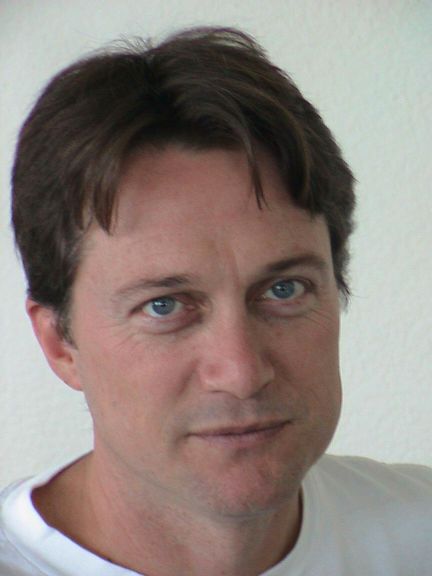Stuck on a Greek island
The year in which I wrote the first draft of this book marked a century since the birth of Carlos Torre. Our age is, in many ways, worse than 1904: especially in overpopulation and in degradation of culture. But there is more freedom to question the family institution in which some parents assault their kids’ minds. A hundred years ago it was impossible to film Shine or even write about a similar case in real life. Claroscuro was titled this Oscar-winning film in Mexico, where millions of viewers saw how an abusive father literally drives his son mad.
There are two ways of seeing Caissa: as the great whore of the marginalised and even of those who have suffered crises like the one Torre suffered, or as a generous mother who welcomes the marginalised into her lap. In the original version of this booklet of 2004, an abominable bias towards the first interpretation appeared, although when speaking of my nostalgic park we glimpse that this mother welcomed many social outcasts and abused young people at home.
The fact is that not all of us were able to dedicate ourselves to cinema like GM Marcel Sisniega. At sixteen he had managed to become the national chess champion of Mexico. He came from such a wealthy family that he even had beautiful palm trees in his Cuernavaca garden. When Sisniega retired from competitive chess in his thirties, he presented his last book at La Cabaña of Las Arboledas park. I attended the event and at his speech he said that if the will to win had died out, as it had died out in him, it was pointless to continue playing chess tournaments. After that sporting farewell presentation before a select group of fans who went to La Cabaña, Sisniega devoted himself to the seventh art and in 1996 he made his debut in the film industry with the making of a short film. But even though Sisniega was a year younger than me, he died in 2013.
 (Left, Marcel Sisniega Campbell.) Not all of us were able to have a career like Sisniega’s because not all of us received support from the family. That is why, although I dealt little with Fernando Pérez Melo in the park (who in a tournament in the 1980s came to play with Sisniega), I dedicate this booklet to that poor fellow who died after Sisniega died. The point is that the marginalised individual has to do something to escape his fate, and along with drugs, Caissa is one of the best ways to do it, although without killing neurons.
(Left, Marcel Sisniega Campbell.) Not all of us were able to have a career like Sisniega’s because not all of us received support from the family. That is why, although I dealt little with Fernando Pérez Melo in the park (who in a tournament in the 1980s came to play with Sisniega), I dedicate this booklet to that poor fellow who died after Sisniega died. The point is that the marginalised individual has to do something to escape his fate, and along with drugs, Caissa is one of the best ways to do it, although without killing neurons.
As a teenager I read a comic from Editorial Novaro where the origin of the game of chess was explained. With friendly illustrations I saw the story of a king of ancient Greece stuck on an island. His soldiers were hungry. Then the king devised a game to entertain them, from which chess would emerge.
Being trapped on a small island is a great story to understand the psychology of the player, and why many of these powerless individuals, but hungry for fight and life like those soldiers, have had no choice but to become immersed in a simulation of war, as is the magical kingdom of the sixty-four squares. At the time I review this book, seventeen years after the first version, I cannot even fight for the creation of an ethnostate because I am alone. The so-called white nationalists, bourgeois to the core, enact a reactionary, not a revolutionary, ideology. Fortunately, these Americans are heading for the biggest economic crisis in their history, and since the world’s fiat currencies are tied to the dollar, when the latter hyperinflates we will all suffer stagnations comparable to that of the hungry on the Greek island.
I would like to end this booklet with the words of the cartoonist Luis de la Torre from his cartoon series that he entitled ‘The Most Beautiful Way to Waste Time’ that I saw in the newspaper many years ago:
It seems incredible that a macropolis like this one where we survive barely has three or four [chess] clubs. Why in this Valley of Tears is it not promoted as education and therapy in schools, delegations, parks, companies, houses of culture, etc.? It sure can become a vice. But it is the healthiest of all vices.
Or the least unhealthy I would say.
One reply on “The human side of chess, 16”
A great read. I love playing board games, especially the ones that simulate battles, strategy and conquest – a category colloquially known as “dudes-on-a-map”.
I don’t get to play chess, or any board game, as often as I’d like. Most normies I know would rather play Monopoly or cards, both of which I despise.
I prefer to view Caissa as a generous Mother, her Mars-given Chess games help assuage this yearning, this mind-hunger for meaningful thoughts; planning a way to defeat an opponent through manoeuver and sacrifice is a much healthier and more natural way of using braincells than writing reports and filing spreadsheets.
If chess is rooted in escapism, then it’s one of the best forms there is.